A look at Breonna Taylor's connection to ex-boyfriend Jamarcus Glover before she died
He was the original target of the investigation that led police to Taylor.
It has been more than eight months since Breonna Taylor was shot and killed in her Louisville, Kentucky, home by police who were executing multiple search warrants in connection to a drug investigation that involved Taylor's ex-boyfriend, Jamarcus Glover.
Those who were close to Taylor say her relationship with Glover was over and that her death was a result of an incident that should have never taken place.
On March 13, just after midnight, Taylor was asleep at home with her boyfriend, Kenneth Walker, when they were woken up by banging on her door. The seven Louisville police officers who were executing the warrant say that they had knocked on the door and announced themselves as police.
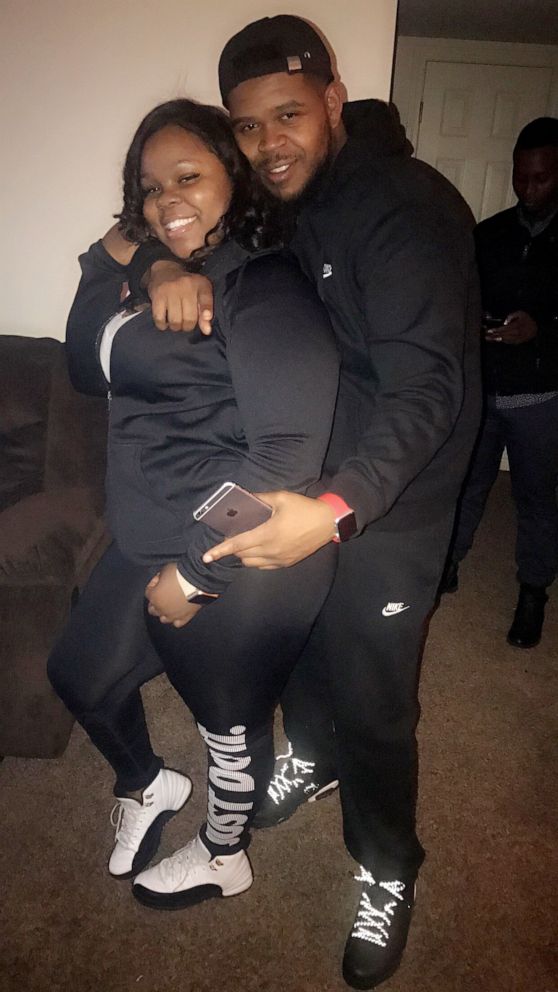
Walker, a legal gun owner who claims he never heard the police identify themselves, said he “let out one shot at the ground,” which he later described as a warning shot in self-defense. Three officers immediately returned fire. The ensuing incident left one officer injured -- Sgt. Jonathan Mattingly -- and Taylor dead.
Glover, the original target of the investigation that led police to Taylor’s apartment, was already in custody at the time of the shooting at Taylor’s apartment. No drugs were found at her home, according to police.
ABC News has been covering the Breonna Taylor case in collaboration with Louisville's Courier Journal. Taylor’s death became a national story shortly after the death of George Floyd sparked nationwide protests demanding justice for Black people killed at the hands of police.
Watch the full story on "20/20" Friday 9 p.m. ET on ABC.
Jailhouse phone calls between Jamarcus Glover and Breonna Taylor
Police say they were at Taylor’s apartment because they suspected Glover had been involved in drug activity. Investigators believed that Glover may have been hiding drugs or money at Taylor’s apartment.
In the wake of Taylor’s death, police released audio from jailhouse phone calls between her and her ex-boyfriend to give more insight into the investigation that led to the shooting at Taylor’s home. Friends and relatives said that they believed the release of the calls were an effort to paint Taylor negatively after her death.
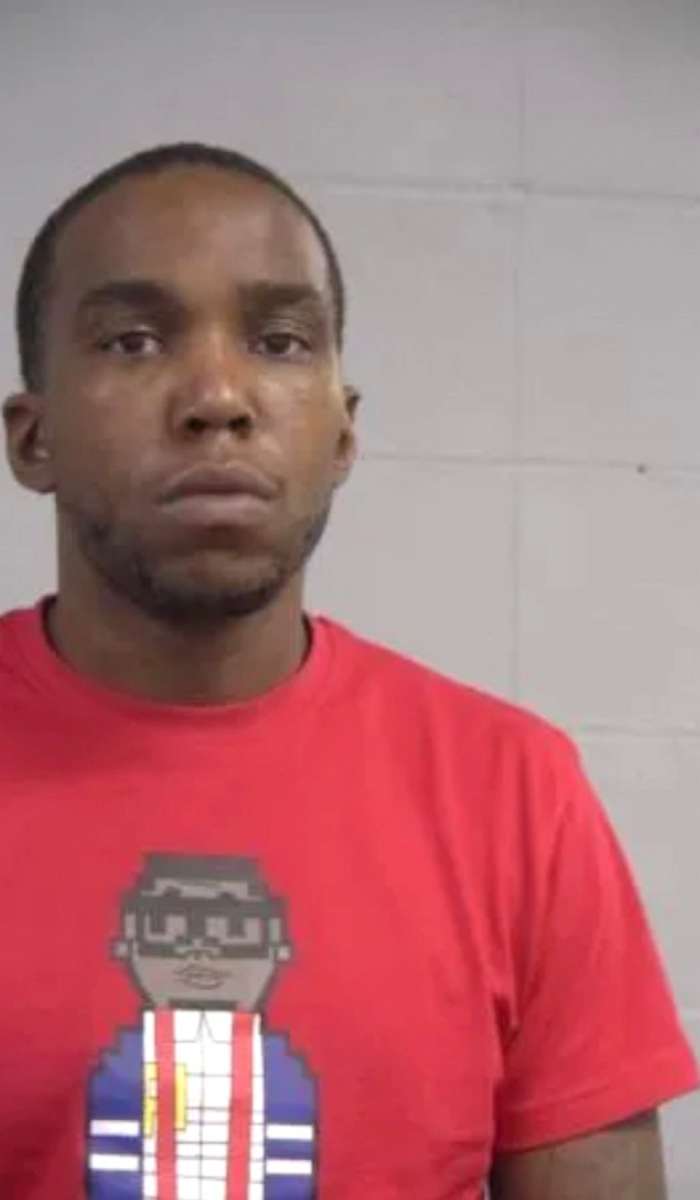
Glover says the last time Taylor spoke to him was Feb. 14, 2020, Valentine’s Day. Those close to her said she was trying to move on from her relationship with Glover.
“I think she really genuinely liked Jamarcus, but didn't really know how to cut ties with him,” said Taylor’s aunt, Bianca Austin.
Still, despite her ex-boyfriend’s alleged drug activity, Taylor’s family says her relationship with Glover does not justify her death.
“We started to ask ourselves, ‘Hey, was Breonna Taylor just thrown into the middle of this? Was she just collateral damage as part of this investigation involving totally different people just because she used to date this guy?’” said Sam Aguiar, the Taylor family’s attorney.
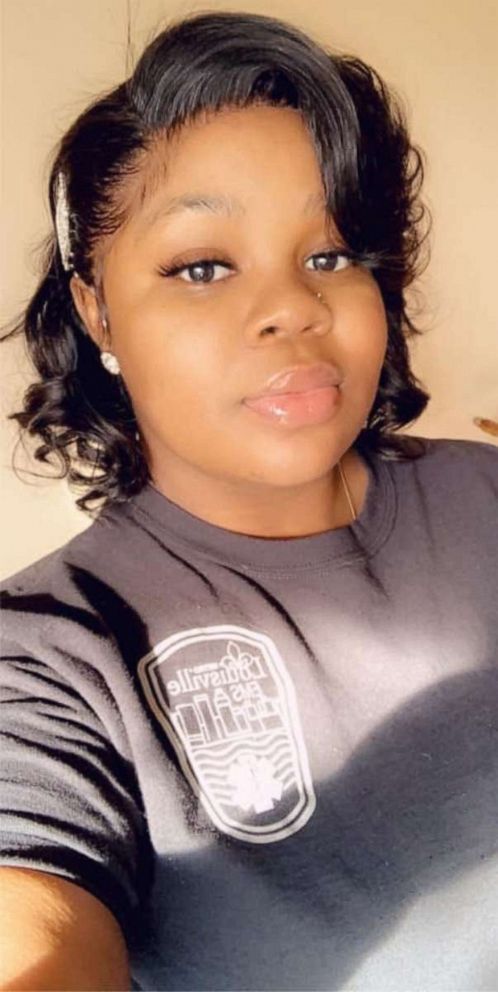
In December 2019, a new unit called Place-Based Investigations (PBI) was created inside the Louisville Metro Police Department. Its first task was to clean up Elliot Avenue, a street deemed to be a high crime, high drug activity area.
According to the Louisville Mayor’s office, “multiple individuals suspected of dealing drugs” were identified in the investigation, including Jamarcus Glover. He had been arrested and convicted for drug offenses in the years before Taylor was killed, but he had no violent criminal history, according to Aguiar.
In January 2020, the PBI began watching Glover and had surveillance on him, according to the search warrant affidavit. The document also said they had seen Taylor’s car outside the house in which they believed Glover was conducting drug operations. They also said they’d seen Glover leaving Taylor’s apartment with a package, according to a search warrant affidavit. Detective Joshua Jaynes wrote that he believed Glover could be “keeping narcotics and/or proceeds from the sale of narcotics” at Taylor’s home.
David James, a former LMPD narcotics detective, is the president of Louisville’s Metro Council, an elected position of Kentucky’s local government that represents Louisville districts in the city. He says Taylor helped bail Glover out of jail in 2017. “In my opinion, I believe that may be why [LMPD] believed that Breonna Taylor may have been involved with some of Mr. Glover's alleged drug activity,” said James. LMPD also included this information in their report on Glover.
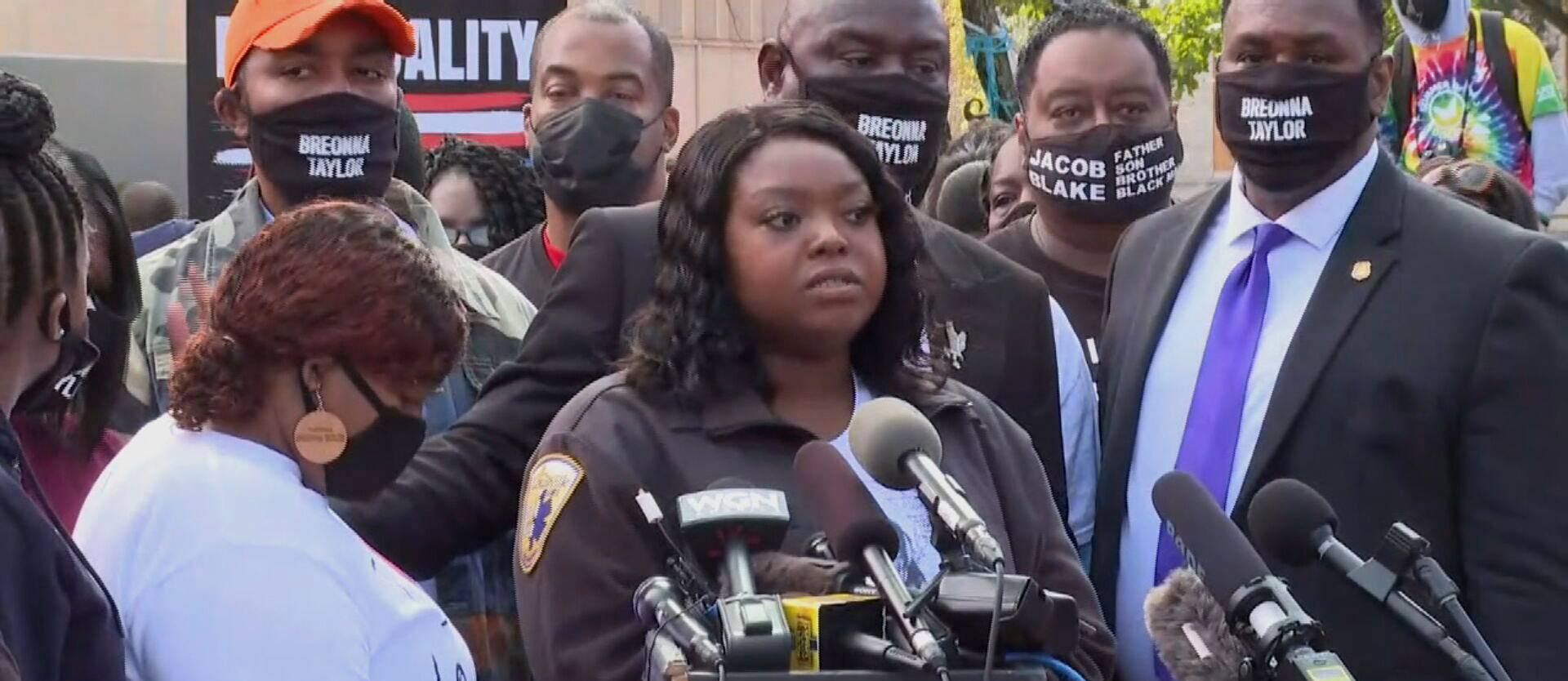
Glover, in an August 2020 interview with journalist Phillip Bailey, for Courier Journal and ABC News, denied being involved in drug activity, saying he’s “… been free from narcotics …” for years. He also denied that Taylor was ever involved with his alleged drug activity. It’s the only time he has spoken publicly about his relationship with Taylor.
“‘[Taylor and I] were together 2016, 2017, some part of [20]18,” Glover said. “But we had got to a point where we weren’t together no more.”
The packages at Breonna’s house
Glover was adamant that Taylor was in no way connected to drug activity.
“The whole thing about all this... They putting everything on the internet trying to incriminate Breonna for the whole situation,” said Glover. “Those jail calls don't got nothing to do with March 13th.”
Glover told Bailey that he never had anything illegal sent to Taylor’s apartment and that he used the address for online shopping. He said that when the detectives saw Taylor visit him in February 2020 the two were outside talking.
“Nothing, nothing ever been illegal there. Shoes and clothes and ---- coming through the mail is not illegal,” he said via video chat. “I’m not bringing no box, she’s not bringing me no box, none of it. She’s not bringing nothing.”
“A hug is not illegal,” he added.
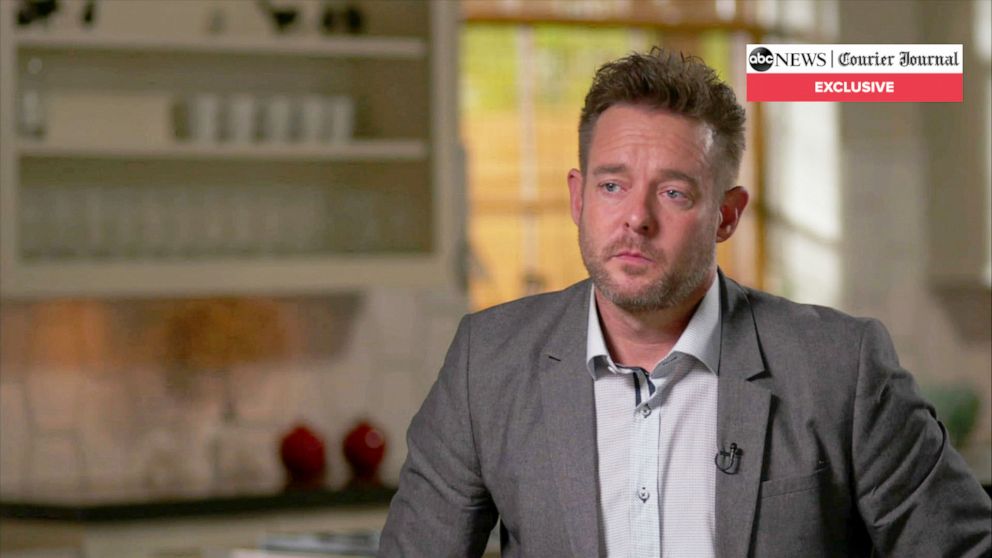
Glover said that he had already been arrested and in police custody when the officers raided Taylor’s apartment on March 13. He said he heard through the police radio some of what was happening at Taylor's home. He has pleaded not guilty to the multiple charges against him.
“I was in police custody when I hear shots fired and they’re screening her address on the police radio,” Glover told Bailey. “After I had already been arrested. I was already in custody.”
Aguiar says that Glover's family provided him with a plea sheet document that they said would have reduced Glover’s possible prison sentence if he pleaded guilty and identified Taylor as being “part of a criminally syndicated enterprise with him.”
“I was blown away,” said Aguiar.
Glover, who is facing more than 20 years in prison for drug charges if convicted, said he would rather tear up a plea deal than smear Taylor’s name.
“I'm going to put everything on the line,” said Glover. “None justify a murder. Nothing. You can't justify it. She innocent. She dead innocent.”
The Jefferson County Commonwealth’s attorney, Tom Wine, said the plea sheet Aguiar and Glover were referencing was just a “draft and not final.” The official plea offer made no references to Breonna Taylor, he claimed in a media release.
Sgt. Mattingly, the officer who was shot in the leg by Walker, said there are multiple people to blame for Taylor’s death including Glover.
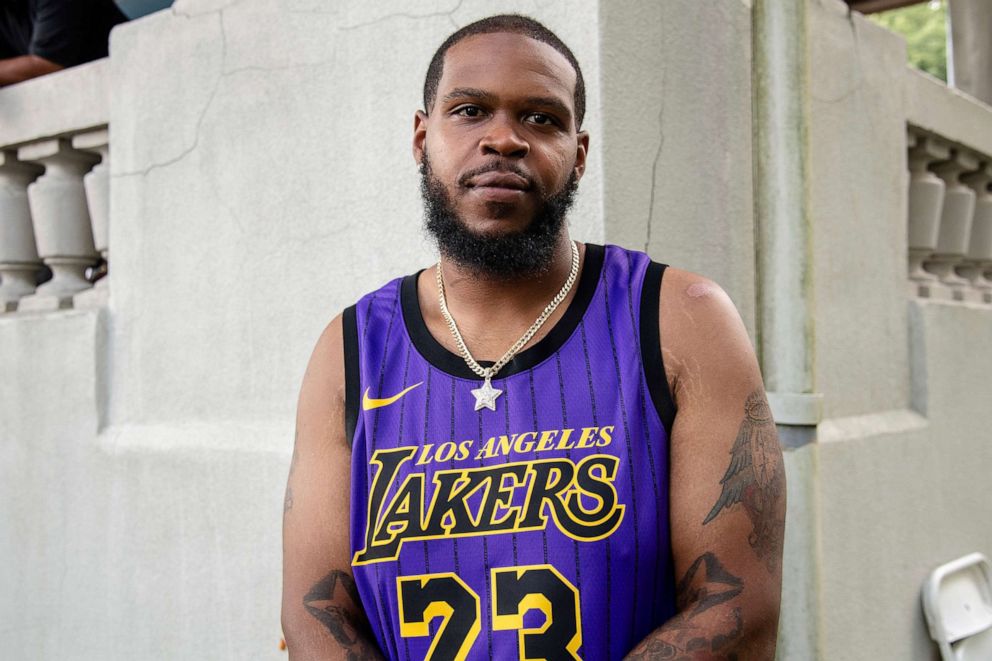
“So [Glover] selling drugs, that’s him putting her in this situation that she shouldn't have been in, ” Mattingly said in an exclusive interview with ABC News and Courier Journal. “The system failed everybody.”
Mattingly says that on the night of Taylor’s death, police announced themselves and tried to give her "plenty of time to come to the door." He says police assumed she was “alone."
“[When police] banged on the door, no response,” Mattingly said. “Banged on it again, no response. At that point we started announcing ourselves, ‘Police, please come to the door!’”
He believes that Taylor would still be alive today if the officers had executed a “no knock” warrant, which allows law enforcement to bust through the door without warning.
“I'm tellin' you, if that had happened, Breonna Taylor would be alive,” he said.
Walker, however, claimed that "Whoever shot her is responsible for her death. Whoever came with that person ... they're responsible. Whoever allowed them to come there ... they're responsible."



